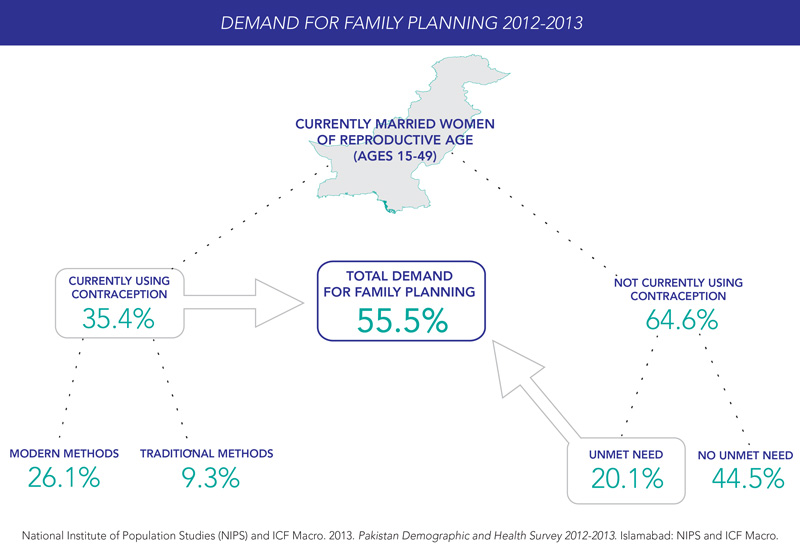-
Kaja Jurczynska, All Access
Pakistan Needs to Empower Women to Boost Its Economy
February 26, 2014 By Wilson Center StaffThe original version of this article, by Kaja Jurczynska, appeared on Population Action International’s All Access blog.
Pakistan is at a crossroads, and not for the reasons you might think.
Data from the latest Pakistan Demographic and Health Survey show the country has an opportunity to seize an economic boost, but only if it can accelerate fertility decline and women’s empowerment through increased access to voluntary family planning and other strategic investments.
The boost is known as the demographic dividend – the accelerated economic growth that results from changes to a country’s age structure, namely a decrease in the share of young dependents (net consumers), relative to an expanding proportion of working-age adults (net producers). With a relative increase in the working-age population, if educated and productively employed, these changes can usher in better living standards for families, increased production per capita, and higher rates of savings and investment.
With a population exceeding 184 million, Pakistan is slowly progressing through its demographic transition – or the movement from people living short lives and having large families to living long lives and having small families. Historically, high fertility has distorted Pakistan’s age structure. In fact, the average number of children per woman did not fall below six until the 1980s. As a result, the country is characterized by large numbers of children and young adolescents. Last year, 34 percent of the population was below the age of 15, requiring significant government and household investments to fund the health, education, and other consumption needs of the youngest age groups. Another 30 percent of the population is between the ages of 15 and 30.
Continue reading on All Access.
Sources: MEASURE DHS, Ministry of Finance (Pakistan), RAND Corporation.
Image Credit: Population Action International.
Topics: demography, development, economics, family planning, gender, global health, Pakistan, population, South Asia, youth
 A Publication of the Stimson Center.
A Publication of the Stimson Center.




